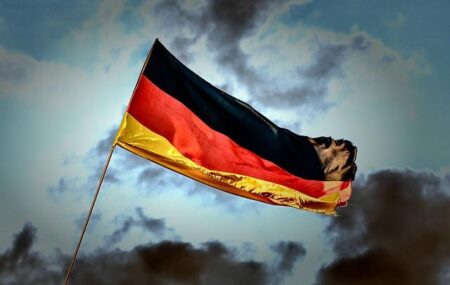Poland’s complex relationship with Germany continues to draw international attention, as the country appears to navigate a delicate balance between historical grievances and contemporary security dependence. In a recent commentary aired on TVP World, concerns were raised about Poland’s approach of leveraging German guilt over World War II atrocities while simultaneously relying heavily on Germany for its national security. This dynamic highlights the evolving interplay of memory politics and strategic alliances within Central Europe, raising questions about the future of Polish-German cooperation amid shifting geopolitical challenges.
Poland’s Leverage of Historical Guilt in Shaping German Policy
Poland consistently taps into the deep well of Germany’s historical conscience, leveraging the weight of World War II atrocities to influence contemporary policy decisions. This approach has proven effective in securing favorable economic concessions and political support within the EU framework. Berlin’s sensitivity to its past misdeeds serves as a powerful bargaining chip for Warsaw, enabling Poland to navigate complex geopolitical challenges with an edge rarely afforded by other nations. The interplay between historical memory and current diplomacy highlights how guilt can be transformed into a strategic asset on the international stage.
Despite this assertive stance, Poland’s security remains intricately bound to Germany’s actions and alliances. Warsaw’s reliance on German-led NATO initiatives and EU security mechanisms underscores a paradox where Polish leverage coexists with dependency. This dynamic manifests in several critical areas:
- Joint military exercises and defense commitments that reinforce Polish territorial integrity.
- Shared intelligence operations designed to counter regional threats, including those from Russia.
- Economic interdependence that fuels Poland’s defense budget and procurement strategies.
| Aspect | Polish Leverage | German Role |
|---|---|---|
| Historical Memory | Active reminders of WWII guilt | Acceptance of responsibility, diplomatic sensitivity |
| Security Cooperation | Calls for robust NATO presence | Leadership in EU and NATO defense plans |
| Economic Policy | Negotiations for EU funds and infrastructure | Financial partnerships and investments |
Balancing Dependency and Sovereignty in Poland’s Security Strategy
Poland’s security landscape is marked by a complex interplay of historical memory and pragmatic alliances. On one hand, Warsaw leverages Germany’s lingering sense of guilt from World War II to secure diplomatic support and economic cooperation. This emotional and political dynamic allows Poland to project an image of moral authority within European forums, strengthening its negotiating position. On the other hand, the Polish government continues to depend heavily on German military technology, intelligence sharing, and logistical backing, revealing a nuanced dependency that contradicts its rhetoric of full sovereignty. This duality raises questions about the authenticity of Poland’s independent strategic stance in the fast-evolving security environment of Eastern Europe.
Key elements of this uneasy balance include:
- Poland’s reliance on German defense exports, including advanced air defense systems and armored vehicles.
- Ongoing intelligence cooperation, crucial for countering regional threats stemming from Russian aggression.
- Political capital gained through historical appeals in EU policymaking, often framing Germany as a partner rather than an equal stakeholder.
| Aspect | Polish Strategy | German Role |
|---|---|---|
| Military Equipment | Dependency on cutting-edge systems | Supplier and technology provider |
| Political Leverage | Exploitation of historical narratives | Sensitivity to reconciliation efforts |
| Security Cooperation | Intensive intelligence sharing | Operational support and training |
Recommendations for a More Equitable and Transparent German-Polish Partnership
To foster a more balanced relationship between Germany and Poland, it is imperative to establish a framework grounded in mutual respect and clear communication. Both nations should commit to addressing historical sensitivities without weaponizing them for political leverage. Transparency in diplomatic dialogues, coupled with a genuine acknowledgment of each country’s security concerns, would pave the way for a partnership built on trust rather than obligation or guilt. Moreover, joint initiatives that promote economic cooperation and cultural exchange can diminish misunderstandings and build solidarity that transcends past grievances.
An equitable alliance requires actionable steps, such as:
- Regular bilateral security consultations to synchronize defense strategies without unilateral dependencies.
- Establishment of a fact-based historical commission to objectively discuss contentious issues and counteract revisionist narratives.
- Enhanced transparency in EU funding to ensure that financial flows support sustainable development rather than political agendas.
| Area | Current Challenge | Proposed Solution |
|---|---|---|
| Security | Asymmetric dependence on German defense guarantees | Shared responsibilities and joint defense projects |
| Historical Narrative | Politicization of collective memory | Neutral historical commission with equal representation |
| Economic Cooperation | Opaque funding mechanisms | Transparent EU fund allocation audits |
Wrapping Up
As tensions persist in the complex relationship between Poland and Germany, the interplay of historical memory and contemporary security cooperation remains a defining feature. While Poland continues to invoke Germany’s wartime legacy in its political discourse, it simultaneously depends on German support within NATO and the broader European security framework. This delicate balance underscores the ongoing challenges both nations face in reconciling history with present-day strategic interests, shaping the future of their partnership in an increasingly uncertain geopolitical landscape.




